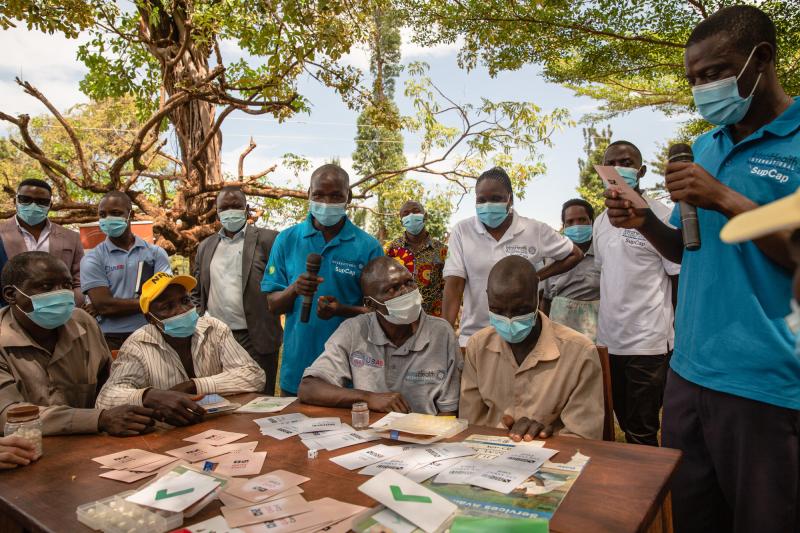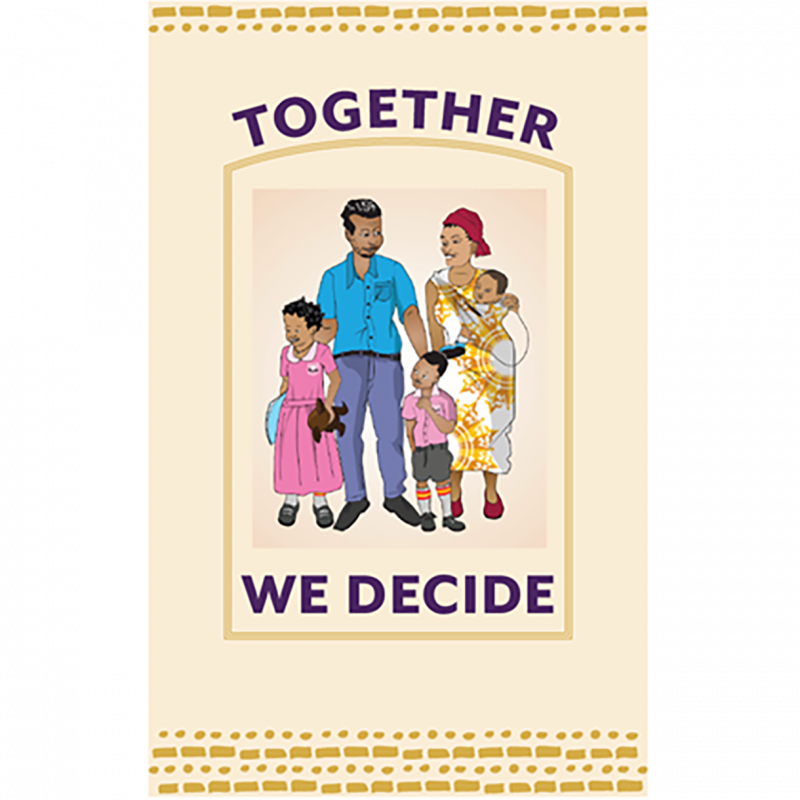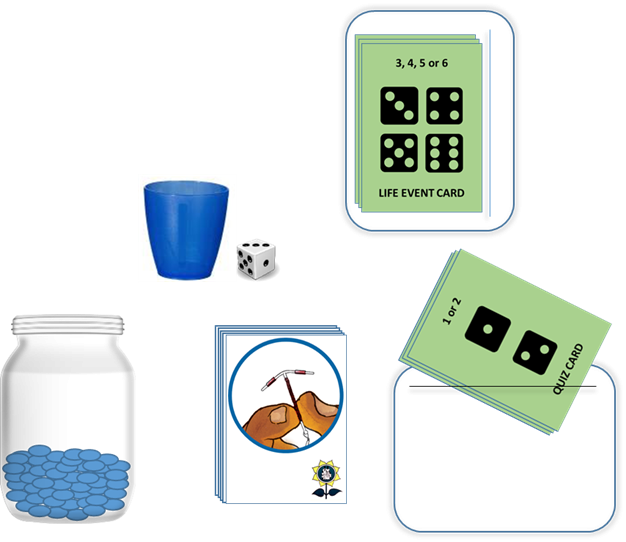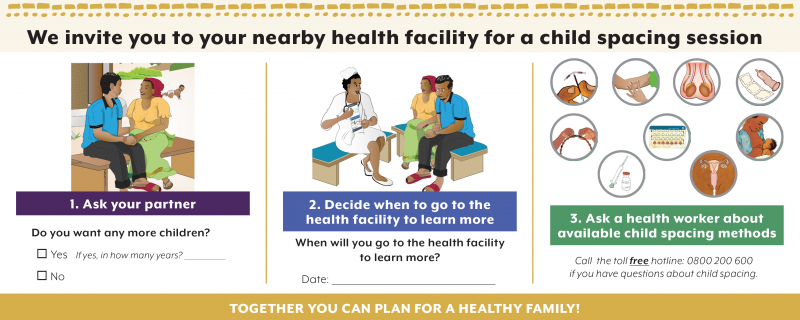Where We Work
See our interactive map


Men play Together We Decide at Kaserem subcounty in Kapchorwa, Uganda. Photo by Esther Ruth Mbabazi for IntraHealth International.
An interactive game for men that focuses on male engagement for family planning and culminates with a child-spacing planning card has increased family planning use in eastern Uganda. Facilitated by village health teams, the game—Together We Decide—is a collaboration between IntraHealth International and ideas42 as part of the Scale-up and Capacity Building in Behavioral Science to Improve the Uptake of Family Planning and Reproductive Health Services project (SupCap).
The project used behavioral science to design, test, and scale up an intervention that would help increase postpartum contraceptive uptake, improve communication about family planning between couples, and increase knowledge about modern contraceptive methods in eastern Uganda.
In Uganda, 28% of women have an unmet need for family planning. In the eastern region, unmet need is even higher, at 36%. The region has some of the highest fertility rates in the country, ranging from 5.6 children per woman to 7.9 children per woman. During the postpartum period, 41% of women need contraception to space their pregnancy and 27% of women need contraception to limit pregnancy.
SupCap found that the game and planning card led more men to believe that couples should decide contraceptive use together and that modern methods of contraception are good options for spacing children.
Based on these data, SupCap scaled up the intervention in six districts of eastern Uganda, which made a big difference in family planning services. During a five-month period (October 2021 to February 2022), SupCap:
One of the key components of the project was the child-spacing planning card, which referred men who played the game to a health facility. The planning cards helped promote family planning conversations between partners and, as a result, women and men came to health facilities together with a plan. Of the clients who brought planning cards to a facility, 94.7% chose a family planning method.
“It’s exciting to see that the project is achieving what it intended to: improving postpartum family planning uptake through male engagement,” says Susan Tino, SupCap project manager. “Registering over 7,000 women who have taken up modern contraceptive methods in just a few health facilities over five months is commendable work by the district, health facility, and project teams.”


Components of "Together We Decide," a game played by male partners of postpartum women and facilitated by local volunteer health teams.

A family planning referral card, which players received after playing Together We Decide.
SupCap worked closely with district health officials, health workers, religious and traditional leaders, and village health teams throughout each stage of the project. Including a wide range of stakeholders from the beginning of the project was crucial to ensuring project buy-in, success, and sustainability.
“We must thank SupCap for this intervention,” says Sister Susan Akora, an assistant district health officer. "Before, we would only see a woman come to the health facility, never the man. Now they come together.”
The project aimed to increase contraceptive uptake and knowledge about contraceptive methods and improve couples’ communication and help inform women of all their available options. For example, facilities in the Pallisa and Amuria Districts saw a significant increase in women opting for the permanent contraceptive method, bilateral tubal ligations. In the Pallisa District, the average number of monthly bilateral tubal ligations increased by 175% and in the Amuria District, the average monthly number increased by 400%.
“We kept struggling to get clients who opted for bilateral tubal ligations, but SupCap made it easier,” says Jenifer Amuge, a midwife at the Gogonyo Health Center III in the Pallisa District.
“The games brought a change. Even those who did not know about bilateral tubal ligations or other methods got the information and understood their importance.”
There were several additional positive outcomes. Over the course of the project, SupCap helped:
Read more here:
SupCap is funded by the William and Flora Hewlett Foundation.



